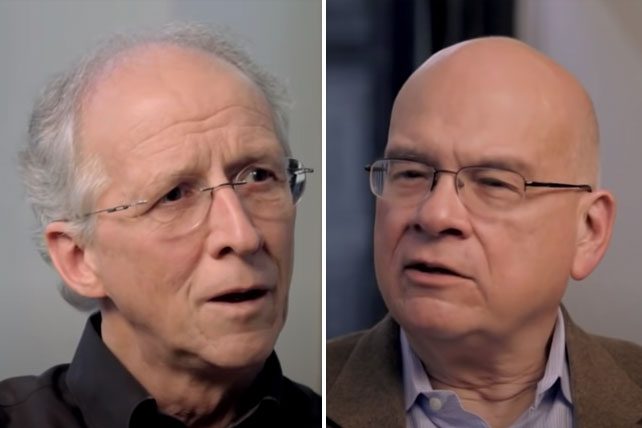What can stop the Coronavirus?
I’m all in for:
- Wearing my mask.
- Social distancing.
- Washing my hands.
That makes a big difference.
We also need factual and accurate information to keep learning the trends, what works, what doesn’t work, and how to be smart about this crazy season we’re all in.
Some say it won’t be over until there’s a vaccine. There is undoubtedly truth to that, but is a vaccine really the magic bullet?
I don’t know what God has in mind, but I am confident that He loves and cares about people and can shut down the Coronavirus by speaking even just one word.
What I do know is that prayer is our best, strongest, and most powerful weapon against this world pandemic.
That may seem overly simplistic and too obvious.
However, my purpose isn’t to write something no one has thought of, but to fan the flame of something we may not be fully tapping its potential.
I don’t want to make prayer complicated, but I do desire to fully engage its power.
We have an incredible opportunity to pray and thereby fully engage God in this battle against the Coronavirus.
“The most powerful form of praying is positive, aggressive, mightily outgoing, and creative. It molds things, changes things, and brings things to pass.”
Leonard Ravenhill, A Treasury of Prayer
What if we prayed that way?
- Positive
- Aggressive
- Powerfully outgoing
- Creative
Maybe you already do. But what if hundreds of thousands prayed that way?
Personal note: I have resisted writing this post.
Not that it’s controversial or anything all that special. Candidly, I told God, “What would I say? Leaders know how to pray, and they are praying. This will seem too obvious.”
But for a couple of weeks out on my daily run, the Holy Spirit seemed to keep prompting me to write on this topic. So, I have.
“Prayer puts God’s work in His hands and keeps it there. It looks to Him constantly and depends on Him implicitly to further His own cause. Prayer is but faith resting in, acting with, and leaning on and obeying God.”
Leonard Ravenhill, A Treasury of Prayer
Praying Against the Coronavirus:
1) Praying against the Coronavirus with a positive approach
Praying against the Coronavirus starts with belief.
You and I must believe that God can end the Coronavirus. Intellectually, nearly every Christian would agree God can, but deep down, doubt can erode our faith.
After nearly six months of enduring COVID-19, questions arise that lead to doubt.
Such as, if God can stop the virus, why hasn’t He? Loved ones have been lost, and that creates sorrow. From there, it’s easy to spin off into complicated theological questions that bury us in conversations, confusion, and candidly everything but prayer.
Questions are good. God can handle them. Doubt isn’t sin, it’s human, but we can rise above it.
Faith is where we start.
We don’t come to God with blind faith or foolish faith. Prayer is based on a personal and powerful God who we know answers prayer. We have experienced it.
What do you believe?
That shapes what you pray and how you pray.
God doesn’t owe us an answer; He’s not obligated to do what we ask. But we know prayer moves Him, and God wants us to engage with Him.
Prayer is an incredible invitation.
2) Praying against the Coronavirus from an aggressive position
“Satan dreads nothing but prayer . . . The one concern of the devil is to keep the saints from prayer. . . He laughs at our toil, mocks our wisdom, but trembles when we pray.” Samuel Chadwick, A Treasury of Prayer, by Ravenhill
I can’t say that Satan himself authored this pandemic, but I do know He takes delight in the division, fear, and sorrow it causes.
Casual and occasional prayers will not stop the Coronavirus, but fervent, relentless and bold prayers can make a life-changing difference.
My daily prayer includes:
“God, please shut down the Coronavirus and heal those who are sick – and open the doors of the Church across the world!”
It’s a simple prayer. God doesn’t need to be impressed. But it’s bold, filled with conviction, compassion, and hope.
The Enemy dreads prayer because that’s how the redeemed partner with the Redeemer.
Prayer is a form of conversation and communion with God, but it’s also a weapon of incredible force.
3) Praying against the Coronavirus with powerfully outgoing authority
Your private prayers are powerful, but Scripture reminds us of a different kind of authority that comes from praying together.
18 “Truly I tell you, whatever you bind on earth will be bound in heaven, and whatever you loose on earth will be loosed in heaven. 19 “Again, truly I tell you that if two of you on earth agree about anything they ask for, it will be done for them by my Father in heaven. 20 For where two or three gather in my name, there am I with them.”
Matthew 18:18-20
Our prayers in agreement with other believers travel beyond us; they are part of the body of Christ and multiply in strength through unity in Jesus.
We gain strength, encouragement, and momentum when we agree and pray together.
It may be you, your spouse, or a small group, or a prayer partner. And you can imagine the outcomes when an entire church prays about something together!
When you hear how others pray, your prayers are deepened, and your faith is increased. You know you are not alone, and it’s easier to sense God’s presence.
4) Praying against the Coronavirus while embracing a creative openness
With the Holy Spirit prompting you, there is no reason to limit prayer to a specific way or particular set of rules, or what you can and can’t pray for.
God can’t be contained. God never contradicts His own attributes or truth, but His thoughts are so much bigger than ours.
As long as we use Scripture as our guidelines, we have great latitude in our prayers.
The Holy Spirit can prompt different approaches; even some you might consider creative.
For example, it is not a lack of faith to pray for a vaccine to be developed. That’s simply a different approach.
We can pray for God’s wisdom to inspire scientists to a safe and affordable vaccine.
You might find yourself praying for funding to resource the development of the vaccine. That’s a little out of the box, and that’s the idea.
God is a creative God, and we are wise to listen for His prompts about how we are to pray against the Coronavirus.
Let’s take our prayers up a notch to take down this virus.
This article about praying against the coronavirus originally appeared here.














